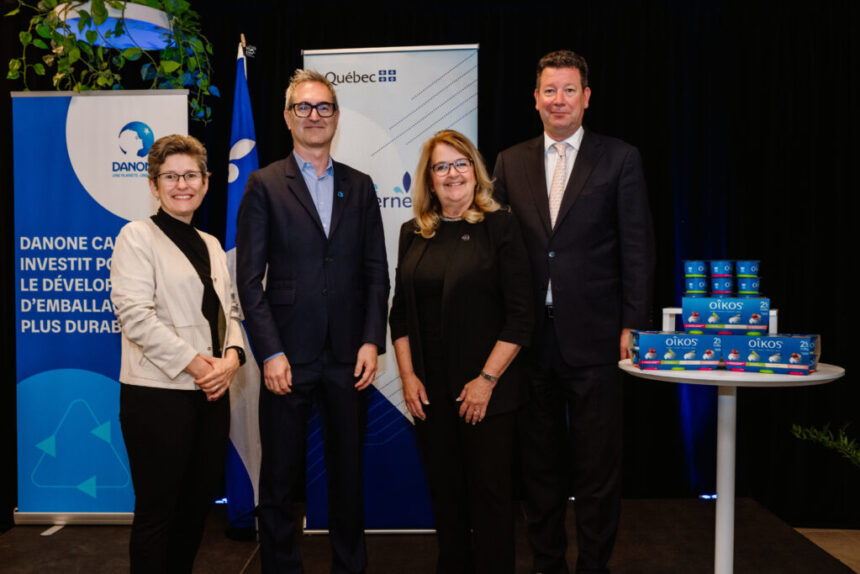The hum of machinery takes on a new rhythm at Danone Canada’s Boucherville facility this month as the global food giant commits $14 million to transform its Quebec operations. The investment represents more than just upgraded equipment—it signals a renewed commitment to Canadian manufacturing at a time when food security and domestic production capacity have never been more critical.
“This modernization project is a significant milestone for Danone in Canada,” said Danone Canada President Melanie Lebel during the facility tour Tuesday. “By enhancing our Boucherville plant’s capabilities, we’re not only improving operational efficiency but creating sustainable, high-quality jobs in Quebec’s vital food manufacturing sector.”
The substantial investment will primarily fund two major upgrades: the installation of a state-of-the-art filling line and the complete modernization of the facility’s microbiology laboratory. These enhancements are expected to increase production capacity by 15 percent while improving quality control measures across Danone’s dairy and plant-based product lines.
Quebec’s dairy industry stands to benefit substantially from the investment. The Boucherville plant sources approximately 40 million liters of milk annually from over 100 Quebec dairy farms, forming a crucial link in the province’s agricultural supply chain. The modernization will strengthen this relationship while potentially expanding market opportunities for local producers.
The announcement comes against the backdrop of ongoing supply chain challenges in the food industry. According to data from CO24 Business, food manufacturers across Canada are increasingly looking to shore up domestic production capabilities after pandemic-related disruptions exposed vulnerabilities in global supply networks.
For Boucherville specifically, the investment secures the future of more than 300 existing jobs while creating an additional 40 positions in skilled manufacturing, laboratory sciences, and logistics. The economic ripple effect extends beyond the plant itself, with local construction firms and equipment suppliers already contracted for the expansion work.
“Manufacturing jobs are the backbone of many Quebec communities,” noted provincial Economic Minister Pierre Fitzgibbon, who attended the announcement. “When multinational companies like Danone deepen their investments here, it validates our strategic approach to industrial development and food sovereignty.”
Environmental considerations feature prominently in the upgrade plans. The new equipment will reduce water usage by approximately 1.2 million liters annually while cutting energy consumption by 8 percent compared to current production methods. These sustainability measures align with Danone’s global commitment to carbon neutrality by 2050.
The Boucherville facility, which produces iconic brands like Activia, Oikos, and Silk, has operated in Quebec since 1971. This latest investment follows a previous $40 million modernization completed in 2018, demonstrating Danone’s long-term confidence in Canadian operations despite fierce competition in the yogurt and plant-based beverage categories.
Industry analysts from CO24 Sports nutrition segment note that the timing aligns with increasing consumer demand for protein-rich dairy products, particularly among the athletic performance market where Greek yogurt has established itself as a recovery staple.
Construction is already underway, with the new production line expected to be operational by summer 2023. The laboratory upgrades will follow, with full implementation anticipated by year’s end. Company officials confirmed minimal disruption to current production schedules during the transition.
As food manufacturing evolves to meet changing consumer preferences and sustainability demands, Danone’s investment in Boucherville offers a compelling case study in how multinational companies can successfully balance global scale with local production. The question now becomes whether other food giants will follow suit with similar commitments to Canadian manufacturing infrastructure.


















